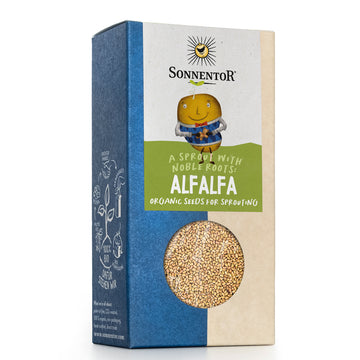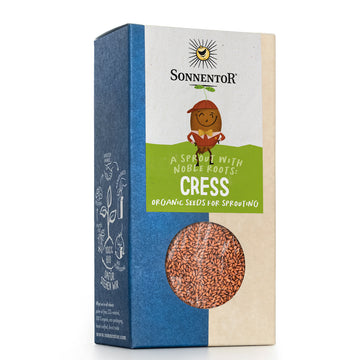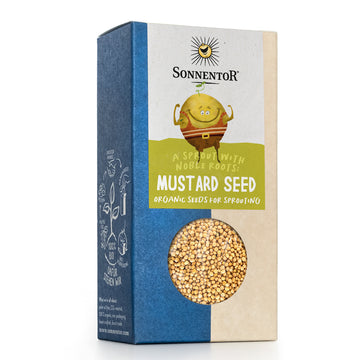Heard of soaking and sprouting? Wondering what it's all about? Eating seasonally and in sync with nature and the seasons can connect us to the plant world around us as well as having positive effects on our health and wellbeing. This time of year is a time for growth and blossoming so why not, take heed from nature and supercharge your nutrient intake by soaking and sprouting seeds, grains or legumes. Here's how to go about it.
What is Sprouting?
Seeds/grains/legumes are mini treasure chests full to the brim with nutrients and antioxidants. But you have to be able to find the right key to open it – soaking and sprouting can activate and release these nutrients while simultaneously removing any anti-nutrients like phytic acid that may be present. Phytic acid is a compound that inhibits the absorption of nutrients - soaking and sprouting breaks this down.
Once you start the germinating/sprouting process the dormant seed starts to become A LIVE plant. It changes both inside and out, and when you eat that seed, no longer are you eating just a seed, instead you are eating a tiny little plant. The process of changing seeds into little nutrient dense plants is simple. The changes that happen have huge nutritional benefits.
In this initial ‘burst’ of growth the seed is at its most activated and nutrient rich. This is the best time to harvest and capture the energy release from the plant.
Benefits of Soaking and Sprouting
Wondering why soaking and spouting is so good for you? Here's everything you need to know.
Increased nutrient absorption
By sprouting seeds, nutrients including amino acids, sugars in the form of glucose, and even vitamins (B vitamins, vitamins A, C, D, E and K) and minerals (calcium, iron, magnesium) become more available and easier absorbed in the digestive process.
Improved Digestive Function
A major benefit of soaking and sprouting is that it unlocks beneficial enzymes. This encourages grains, seeds, beans and nuts to be digested more easily which can help alleviate IBS issues.
Increase Protein Availability
While the concentration and variety of proteins will vary in sprouted seeds (chia/flax/sunflower), most studies indicate that proteins become more digestible when the seeds are sprouted. Therefore they allow the body to absorb proteins for recovery and repair more readily.
Increase Enzyme & Antioxidant Content
When tested, sprouted seeds displayed higher antioxidant levels. This significantly increased and improved free radical scavenging and detoxification activities when compared to the seeds that had not been sprouted.
How to Sprout
Rinse or soak your chosen seed/grain/legume depending on what you choose to sprout. Add to your germinator tray or jar and leave where they will be exposed to air. I like sprouting Alfalfa as these seeds are nutrient powerhouses, easily sprouted and versatile to add to lunch and dinner recipes.
Alfalfa sprouts complement light meals such as salads at any time of the year. The slightly bitter, mildly nutty taste adds a distinctive flavour to salads, soups, dips and many other dishes.
Alfalfa sprouts are an excellent source of vital nutrients. Considered one of the most nutritionally rich sprouts, it contains high levels of protein, calcium, carotene, iron, magnesium, chlorophyll, potassium, zinc and other minerals.
Water: Twice or Three times daily
Ready to eat: After approximately 4 to 6 days
Once sprouted you can keep in and air tight jar/container in the refrigerator for up to 7 days.
Take a look at our full Sprouting Seeds range here
Want to know more about how nutritious plant-based diets can be? Then read our blog 'What you Need to Know About Starting a Plant-Based Lifestyle'.
Checked and updated: 6 September 2021
















